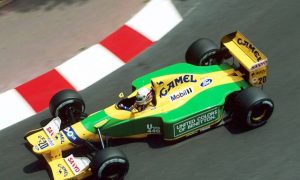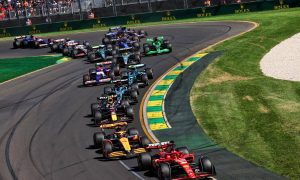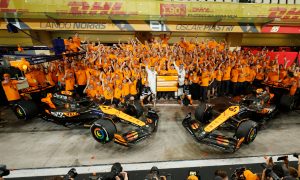After fifteen rounds of the 2014 Formula One season, Mercedes had 522 points and was on the verge of securing the constructors’ championship in a year which featured a double-points finale. This season, the fifteenth round saw Mercedes win a second consecutive constructors’ title with 531 points to its name.
Mercedes’ advantage was huge during the first year of the V6 power unit regulations, but the likes of Red Bull and Ferrari targeted closing that gap this season. Sebastian Vettel’s victory in just the second round of the season at the Malaysian Grand Prix suggested the Scuderia may have done so in terms of raw performance, yet Mercedes has at the very least matched its achievements of 2014.
The figurehead tasked with ensuring those high standards are maintained is Toto Wolff, and he tells F1i the secret to Mercedes’ enduring level of success is not believing its own hype.
“It was tough [to maintain the level of domination], because as you know at times [it was difficult]; Singapore was the last example, Hungary was another one, Malaysia we caught ourselves out,” Wolff said. “So there was never any dull moment where we could have relaxed and enjoyed our performance because we kept the pressure in the system in a way that is our philosophy of being a bit sceptical about our own results.”
Lewis Hamilton is also on the verge of retaining his drivers’ championship after outperforming team-mate Nico Rosberg this season, with the Briton able to secure the title in Austin. There were numerous flashpoints between the two drivers in 2014 as the title race went down to the wire, peaking when Hamilton claimed Rosberg had deliberately hit him during the Belgian Grand Prix. While denying the two have become easier to manage this year, Wolff says the experience of working in such a pressured environment has helped avoid any repeats.
“I think we are always faced with the same difficulties in the way it is two drivers fighting for a world championship in equal machinery, in the same car. You can’t expect it to be an easy ride. On the positive side, we have been working with each other now for three years, it’s the third year and we’ve all got to know each other better in that particular environment. So that is easier.”
As executive director (business), Wolff has to worry about more than just what is happening on track. While the Mercedes F1 team posted a loss of £76.9million ($117m) in 2014, he says the success seen over the past two years has led to huge exposure for the Mercedes brand and its sponsors.
“We are on plan of what Daimler expects from the team. You must just not forget how much the marketing benefit and the branding benefit is of the Formula One exercise. We had $3 billion of marketing value compared to our spending. One thing is clear, we are trying to be very efficient and the pressure from the Daimler mother company is always on and we are on a downward slope in terms of our costs.
“Nevertheless, the value we achieve in racing in Formula One makes sense economically to Mercedes and our partners.”
However, Wolff admits there would be an even better return from both a sporting and business perspective if Mercedes was winning in a more competitive environment.
“The closer the racing, the better the racing, the more competitive the platform, the more interesting it is for the fans and the spectators, that’s clear. If you win it, the more value your win has, but in my role I need to focus on optimising the benefit for Mercedes and optimising the benefit for the team and focus on that.”
Going in search of a third title in such style, Wolff might well be encouraged by the progress made by Ferrari this season in closing the performance gap, even going as far as to claim there is doubt over who should be tipped for next year’s championship. With new regulations set to be introduced in 2017, Wolff has no concerns of Mercedes subconsciously taking its foot off the throttle after two dominant seasons.
“I wouldn’t say that next year we are favourites, I would very much see Ferrari in a position to be very competitive next year and from 2017 it’s then the same situation for everybody. So for the sake of Formula One, for making it interesting and spectacular, changing it and changing the cars is - in my opinion - the right formula.”
Having matched last year’s achievement of winning the constructors’ championship in Russia, Wolff says ongoing work behind the scenes ensures there is no complacency and no dip in motivation to try and reach the same level again next year.
“We haven’t lost our hunger and anger to win races and championships, but the development of the team is never static. It’s a dynamic process and by winning the championship this year we’ve shown we did it one more time, and it is a solid base, nothing less and nothing more.
“Next year when the points start at zero again, nobody cares whether we won it in the year before, so the motivation will be as strong as it was from the beginning onwards.”
Click here for analysis of the technical updates on display at the Russian Grand Prix
Click here for a lighter look at some of the scenes from the Russian Grand Prix
Click here for the F1 drivers' girlfriends gallery
Keep up to date with all the F1 news via Facebook and Twitter











